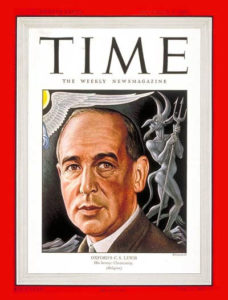The Forgotten Reader 3: Sharing The Joy
We have already seen …
- Too many Christian-fantasy blogs focus on the joy and business of writing rather than reading. That’s a grave miscalculation in engineering, designed as if to prevent a launch.
- Before teaching others, we must learn how to read and receive stories ourselves.
That last brought some just criticism, on which I need to touch before moving on.
R.E.A.D.-ing bad stories
 Austin said this:
Austin said this:
[The suggested R.E.A.D. paradigm] artificially limits the spectrum of discussable stories to the awesome end only, and requires all book reviews to constitute potential back-cover blurbs.
To which I replied:
True, I was thinking mainly of the “awesome end” of stories. Yet surely even subpar works should be Received, even if they don’t also lead to Delight.
So what if a story is less incredible, or at best awful? We might modify the megachurch-sermon-style acronym a bit. It still starts with Receive, for criticism must still be humble.
- Receive. Even a bad story deserves our attention first. We can try to “lose ourselves” in it. (Parallel: Even in church we would listen politely to a bad vocalist, and not boo her.)
- Enjoy. Thanks to God’s common grace, few stories are fully horrible. What is good about it? What was the author apparently trying to do, and how might we admire that goal? (Parallel: We can be grateful for a church vocalist’s goal to worship, even if she’s awful.)
- Ask. Here is where we depart humble optimism, yet with humility. What made the story so bad? How could it be better? (Parallel: gracious yet truthful suggestions for a church vocalist. Even those who know little about music technique know what sounded poor.)
- Delight. Even constructive criticism will bring hurt feelings and outrage, often of a faux-spiritual sort — e.g., how dare you judge my heart; this is the story God wanted me to tell, and there are many worse pagan stories out there. In this case we would want to point to truly objective Biblical standards for art that glorifies God. Our goal in criticism is not having fun or even Improving the Industry. Our goal is to encourage better worship. (Parallel: our off-key church vocalist should be asked what helps her delight in music, and then be encouraged to seek training as that artist did, or another worship method!)
Now for some explorations on how to encourage R.E.A.D. concepts — positive and negative, with or without the corny acronym — in others. Here I’ll touch on the three likely ignored reader groups I mentioned two weeks ago, and in a format very familiar to we “writicists”:
The elevator pitch
Consider this. We get plenty of blog posts and columns on how to pitch a work-in-progress to an editor or agent. Less often do we hear pitched pitches on how to address readers.
Below are my scripts, which I invite you to read, challenge, and modify.
“Oh, so you read and write Christian fantasy? …”
1. Parents
 “… I want to find good stories for my (son/daughter, [name], who is X years old).”
“… I want to find good stories for my (son/daughter, [name], who is X years old).”
That’s fantastic. (If applicable) So do I, for my (child, [name]). And I don’t want only to find stories that will only edify, evangelize, or entertain, you know? They should be better.
“What do you mean?”
I once thought the goal of a story was limited to moral edification, or direct evangelism, or even just to distract the kids with entertainment. Since then I’ve found that God in His Story of Scripture doesn’t think like that. All those three things do matter, just as edification and pleasant melodies matter in a song of worship. But a story of worship should first glorify God and explore His beauty, goodness, and truth. That’s also why I want to enjoy stories for His glory. After all, if others don’t see me doing that, they may think that stories are only for those other things. (If applicable) My children should see that I love God-honoring stories.
2. “Lewis/Tolkien or bust” readers
“… I don’t read much other Christian fantasy. Just give me Lewis and Tolkien any day!”
I love those authors. We likely wouldn’t have any other stories today if it weren’t for them. But I’m sure they wouldn’t agree with us only enjoying their stories and not at least trying to determine if other God-honoring stories exist. They are out there; you would love them. Absolutely, some evangelical fiction is bad — but often because their authors get stuck on trying to imitate only Lewis and Tolkien, without tracing their art and beliefs to the roots. Let me tell you about this fantastic novel I was reading the other day …
3. Church folk
“… I don’t get into that fantasy stuff. I’m more of an Amish/historical/romance person.”
Ah, I’m certain every fiction genre can glorify God. Do you think fantasy or sci-fi can?
(If “yes”) Let me tell you about this fantastic novel by I was reading the other day …
(If “no”) How come? (Bypass objections to magic, someone-else-used-it-to-sin, etc. After this reply, the person will need to choose whether he/she really wants to call you a liar outright.)
Here’s why I think otherwise: because God’s Story is fantastic. I believe He is working today in miraculous ways to call out a Covenant people and redeem the world. He has promised that His people will someday live in a fantastic realm, when Heaven touches Earth to give birth to eternity. I love stories that help me think about such a time, and about good and evil, redemption, the miraculous. Fantasy and science fiction are fun, yes, but the central reason I want to love them is because they draw me closer to the Author of fantastic reality.
Invitation
You be the editor. Revise those scripts. Add realism based on your own experience dealing with those groups — or your own script about another group. What has worked for you?
How have you previously explained your fantasy story enjoyments to such folks?












































Pitching fantasy to readers involves telling certain universal stories, my favorite is the coming of age tale, and the quest tale. Almost everyone can relate to these tales.
In addition to my own Fantasy Ya & Midgrade writing to review about 200-250 books a year. I have about 20 different publishers sending trade paper, and ebooks sending books for review. I post on Goodreads.com and Shelfari.com and Amazon.com/kindle
Blessings, Bill
Even more than following the model of a novelist’s pitch to a publisher or agent, this post appears to be subverting, or at least gently poking fun of, the tracts and flowcharts that try to account for all the possible directions that a conversation between an evangelist and a listening unbeliever could take. Good one.
My goal in the small amount of reviewing that I’ve done has simply been to tell the truth.
I agree that reading and enjoying stories is worship, that everything that we do should be an act of worship. I believe that truth, goodness, and beauty are all one, or at least I think I do. However, that doesn’t mean that outward aesthetics are indicative of truth or true beauty. A person who is unattractive is not sinful because of his or her physical ugliness. Likewise, I don’t think it’s necessarily sinful, or even un-worshipful, for someone who can’t sing very well to try to sing, even in front of people (if the bad singer happens to be sufficiently brave). Granted, some Christians who don’t have talent probably believe that they have a right to be enjoyed and appreciated by other Christians, and that is not a worshipful attitude.
I think honest criticism is good and helpful, but I don’t think it’s always necessary. There would be no particular reason for me to tell a bad vocalist who sang at my church that his or her singing is abominable. If I were to write a 1,000+-word review about last week’s volunteer vocalist and give it to the pastor or the church secretary for inclusion in next week’s bulletin, I would be turned down, and they would think that I’m even stranger than they already think I am.
But this hypothetical challenge from the hypothetical “Lewisian” speculative fiction skeptic demonstrates an area where criticism is definitely needed. The natural reply to the response, “They are out there; you would love them” is, “Yeah? Well, give me a few titles.” And then you’d better have more than one title to mention, and you really should be able to explain exactly why those titles are worthy of the attention of people who expect the depth of the Inklings. It might help if you could take out a smartphone/tablet/laptop and navigate to a deeply critical but positive review published on the web.
As an apparent Lewisian (I guess), I give that last paragraph a hearty “Amen.”
A little bit.
I recall the first time I finally noticed the Flowchart Method of interaction and evangelism: it was on a Christian website that suggested how to discuss with pagan friends the themes of The Lion, the Witch and the Wardrobe film. It sounded like an android wrote it, perhaps Lt. Commander Data from the early TNG seasons.
Agreed and amen. I suggest this can only lead to better worship. Perhaps the reason why we struggle to read and worship is because of that very reaction some of you echoed: that it doesn’t matter my worship is truthful or even well-done, because Love does not criticize. And yet here is Jesus Himself, speaking to us: “God is spirit, and those who worship him must worship in spirit and truth” (John 4:24).
Yes. The Devil himself dresses up real pretty, after all. I believe Austin fleshes out this point further in the below comment, about the apparent Game of Thrones sepulchre that covers a pile of rotting bones.
I’ve no objection either. But shouldn’t a Godly musician want to do better, if trusted people lovingly, carefully suggest improvement? To react otherwise, after the fact, can reveal a less-than-genuinely-worshipful perspective.
I’m aware of at least one case where an author submitted his/her book for review at a website, and the reviewer, after reading a published copy, wrote back to say that he/she would prefer not posting the review, because it would be very negative. The author’s response was, shall we say, less than Christlike, and not worshipful. It seemed to betray a different motive for writing, and presumbly also reading.
Agreed. Any “art” criticism should come from a trusted person anyway, and should, so to speak, “fit the crime.” For a Biblical comparison, per Matthew 18: a private disagreement should be handled privately, and a public disagreement (for example, a televangelist’s false teaching) handled publicly. That’s why it matters to become trusted readers and reviewers, who praise/critique public materials also in public.
Agreed again. Yet it’s also necessary to challenge potential preconceptions. I’ve had to deal with these myself — the quiet question of Why should I read from some author no one has never heard of and who wasn’t even on the cover of Time magazine decades ago? The only answer is: because it’s great stuff. (Not any kind of stock-evangelical answer like, To Support a Ministry, or Because It’s Christian.)
This is where the disconnect comes in for me, because I personally have a goal of Improving the Industry, however hazy and improbable that is. I think better worship would be inspired from better material.
Aside from that, I would want to quibble on what exactly you mean by worshiping by reading. If we were going to discuss story as an experience vs. story as an action of the reader, I’m probably going to fall on the side of experience. Heck, I’m sure worship itself can be argued about in terms of experience vs. action, but for that I tend to fall on the side of action, so therein lies my conundrum.
I agree. And I say it like this because the Church is full of examples of attempts made to improve worship — be it through visual arts, or especially music, or literature — that quickly become ends to themselves. That’s natural, because “the human heart is an idol factory,” yet it’s also an impulse we mortify for the sake of Joy Himself.
Per a further answer, I can easily, yet lengthily, cheat, because last year I tried to explore this question in a series: Reading Is Worship. Underlying this is a definition of worship that I understand according to one historic confession:
Worship = To glorify God and to enjoy Him forever.
From part 1:
And from part 7:
Hope that helps! I’m certainly open to exploring the idea further, here or elsewhere.
Maybe I’ll consider these points with my parents and one of my brothers–the other one is a full-fledged Whovian and Star Wars fan(what are they called anyway) and needs no nudging. The problem is that “I don’t like that sort of stuff” tends to shut down conversation, but I do like what you said about shifting the focus a little to, this is a great story, not this is a great fantasy
Hey Stephen. As always, I appreciate you taking point on this unfolding discussion.
I’m not at all sure that all stories — even bad ones — deserve our attention. Is there a particular reason you make that assertion? While I believe it’s a rare story indeed that has nothing of value to offer a discerning reader, the detriments of reading poorly-written or worldview-distorted stories often vastly outweigh the potential benefits. I’ll use a personal example. A few years ago, incessant popular acclaim convinced me to start reading A Song of Ice and Fire. Seemingly everyone was raving about the series’ intricate plotting and ‘realistic’ characters. So I cracked open A Game of Thrones, expecting something worth my time. After witnessing like five sex acts in the first fifty pages, I realized that no, the debauchery wasn’t gonna stop and that yes, George R.R. Martin is a dirty old man. That realization allowed me to shut the book, put it down, and walk away forever.
I understand that what I find mentally degrading and unacceptable may be no big deal to someone else. I’m not now telling people to avoid Martin like the plague (although, if you really don’t relish the thought of every single character getting nekkid in like every other chapter, then Martin really isn’t your mug of ale). What I’m pointing out is that, at least for me, no redeeming quality which might happen to inadvertently crop up later in Martin’s series could possibly be awesome enough to justify an interminably degenerative slog through the filth of his nihilistic fantasy world. I was only able to Receive the first fifty pages before spitting them back out. How then could I have Enjoyed, Asked, or Delighted?
And if I made the right decision by putting that book down, then we’ve just established that stories don’t deserve my ingestion by default. They must earn it through a lot of hard work on the author’s part. My time as a reader is incredibly precious. The opportunity cost of reading a poorly-written novel — let alone an evil one — is incalculably high. I do believe there’s a lot to be gained in terms of cultural and philosophical understanding for Christians willing to study various seminal secular works and flagships of pop culture even when those books feature twisted worldviews or cringe-worthy craftsmanship, but that kind of reading can’t really be defined as “delight.” That’s a strong word. I don’t tend to delight unless that delight is unqualified.
Something you said in your modified R.E.A.D. delineation prompts me to echo a point made by bad_cook above: that quibblement over your definition of “worship” now seems necessary. You say that “Our goal in criticism is not having fun or even Improving the Industry. Our goal is to encourage better worship.” But worship, by definition, is an act of the heart. In the words of C.S. Lewis, “The perfect church service would be one we were almost unaware of; our attention would have been on God.” It is therefore impossible to “encourage better worship” through criticism. Such criticism merely returns the prospective worshipper’s focus back to him- or herself: “Was I doing it right? Did I make a mistake? If Austin and Stephen don’t appreciate my performance, how can a holy God?” The real mistake comes in thinking of worship as a performance. If it is a performance, it has little to do with God: its purpose is to please judgmental human spectators. Not that there’s necessarily anything wrong with that; I agree with you that an off-key singer shouldn’t, ideally, be handed a microphone during a worship service. Why? Not because she needs to learn how to “worship better” — the worshipfulness of her heart is a matter between her and God. No, she shouldn’t be raised up as an example of singing because there are more folks watching her than the One she’s singing to. If she wants to sing God’s praises according to the measure of her ability without being judged, she’ll have to sing to Him in private. The rest of the time, her artistic excellence or lack thereof will either help or hinder others’ worship. Same principle applies in the realm of writing.
Which is why my book critiques are always intended to Improve the Industry.
Agreed. They don’t. In this I’m assuming someone has already picked up a book and tried to get through it, even for the sake of cautioning others about it.
For example, if/when I ever get back to reading The Shack, I would try to read it with humility and understanding for what the author was trying to do. If there’s any possibility of being “lost,” even for nanoseconds, I want to be open to that.
However, I doubt that will happen, even if/when I finally try to read all of it.
I’m with you on Game of Thrones. I don’t understand why many otherwise discerning Christians at least enjoy this pornography (unless someone can prove me factually wrong? but they would speak against a whole lotta liars, then). Here I speak of the TV series, which has people committing acutal sins onscreen — e.g., nudity, unlike actors who feign violence or even swearing. But surelyeven the books are, at absolute best, a potential sin of wasted time. Even if the writing were absolutely incredible, etc., etc., it’s a bright sepulchre over, well, a Throne of bones.
To advocate devilishly, this has enabled you to warn others and strengthen your brothers and sisters in Christ. Danger! Don’t read this. It’s just nasty. Avoid. Maybe there is even a little enjoyment or delight in such critique (we simply must be careful with it!). I recall giving this some thought elsewhere and considering that this is a kind of “delight” by contrast. For the same reason, people “enjoy” disaster movies. I recall viewing on DVD the over-the-top-yet-still-stunning disaster film 2012 and absurdly “enjoying” it, because at the end my wife and I could say, Well, thank God that isn’t happening! Ah, here it is — the “glorify by contrast” idea.
Of course, if there’s no way to read the book all the way through and thank God that He gifts people with writing better stories — and then enjoy those stories even more by contrast — then sure, answer the first question Asked (why bother?) then dump the book. (Whovians, rejoice: Silence will fall when the question is asked.)
Agreed. Perhaps it would be more accurate to say that kind of reading could lead to delight. For example, not long ago I read a popular-level Christian sorta-speculative novel that happens to be listed in our SF Library — published by a mainstream evangelical publisher, by a relatively popular bestselling author. The book was horrible, full of shallow characters, strung-out cliches, and a predictable ending.
One could even say that this particular attempted story included only an Invasion of the Child-People, Blind Ones, Voices From Beyond, Terror of the Megachurchians, Pagan Straw Men, Alien Love Slaves, Attack of the Spiritoids, and The Invisible Body. And see there, I got a whole series out of reading this thing.
Still, I might have wasted my time. But instead it might be like Thomas Edison, mythically trying all those bulb materials before finally fixing on the right filament.
Yet must the heart not be re-trained? In discussing reading, I’m of course thinking about personal, individual worship. God also encourages collective worship in the church, through singing and teaching, acts of service, etc. Worshiping in spirit and in truth, individually, is in one sense “easier.” Other things come into play, though, when we worship with other believers. Paul saw no conflict in encouraging people to express their hearts, but also commanding that this be done decently and in order (1 Cor. 14:40). Similar admonitions lead to “practice, and tune your instruments.”
I agree: explicitly, surely not. But I think to re-make the comparison to music. A person training to play the organ, guitar, drums, synth, whatever, would accept criticism of the right sort specifically because he wants to worship God better. He wants to get to the point of being, in some sense, thoughtlessly excellent — when better worship and craft of worship is instinctive. It’s a new nature.
Ah, “new nature.” Sounds like an exercise in holiness. And indeed this could be called an act of sanctification. It’s conscious effort. Just as worship is — it takes effort to get to the place of self-forgetfulness and pure skill, in order to become a better instinctive-worshiper (or an athlete, a metaphor the apostle Paul uses).
In music, one would hope that these things — practicing, etc. — would be done in private, before “going public.” In writing and publishing, isn’t it very similar?
I would agree that a navel-gazing music leader/story author who thinks this way would be missing the point. If her heart is in the right place, leading previously to hard work and practice and prayer and learning, then God approves this worship.
Let not my remark come as a rebuke to wanting to Improve the Industry. In one sense, Speculative Faith certainly exists to help Improve the Industry. Yet that is a means to an end. Let’s say we have an Improved Industry today. What reason then would keep us working? Or would we be out of business? With the exception of urging battles against lies and sin now, we ought to be encouraging better stories today for the same reasons we would in the New Heavens and New Earth: because better stories will help us worship the Audience of One, and reflect Him to others.
Hope that makes sense. I’m greatly enjoying these discussions.
“In music, one would hope that these things — practicing, etc. — would be done in private, before ‘going public.’ In writing and publishing, isn’t it very similar?”
Yes, but why is that? Obviously, something changes between the time we’re in our “closet” (Matt. 6:6) and up on a stage. I assert it’s because, at the point of publicity, pure worship is no longer our chief concern. If it were, we would’ve felt no need to “go public” in the first place. Instead, we’re rightfully focused on how we might glorify God before others. And here’s where the definition of terms becomes difficult and crucial: at the confluence of worship and glorification.
According to the New Oxford American Dictionary, to worship God is to “show reverence and adoration for” Him, whereas to glorify God is to “reveal or make clearer the glory of (God) by one’s actions.” The distinction is clear: we worship God with our internal will and glorify Him through the external results of that will. The reason I say this distinction is difficult is because I agree with John Piper that “the chief end of man is to glorify God by enjoying Him forever” — a statement that would appear to equate mere enjoyment with glorification, but which in reality points up the fact that God isn’t interested in being glorified by human actions unmotivated by inner worship. The reason I say that this worship/glorification distinction is crucial is because a lifelessly mechanical obsession with works will inevitably result from the idea that one can do a poor job of worshipping God.
One can certainly do a poor job of glorifying God, yes. If I get up in front of my congregation and massacre a hymn, I should be ashamed. If I publish a work of “Christian” literature — whether an Amish romance or a cyberpunk thriller — yet don’t bother to hone my prose, my plot, my characters, or my setting into razor-sharp implements of storytelling, I shouldn’t protest when readers judge me harshly. Why? Because I — through ignorance or laziness or hubris or whatever — botched a chance to glorify God in front of a whole bunch of people.
Worship isn’t the issue here. No one but God can judge my worship, as it’s intended for and directed at Him alone. Whether or not I’m glorifying God, on the other hand, should be obvious to all.
We’re tracking the same here; in fact, just as I was thinking about the crucial definition(s) of glorifying God and worship, you went ahead and went there. …
Here I’m indeed equating glorifying God to others with worship. I have accepted that confluence of definitions all along. In fact, I might go so far as to say that one cannot glorify God intentionally without also worshiping. To attempt otherwise would be hypocrisy, a mere religious show, “singing” yet without Godly intent.
Crucial here is a difference between two kinds of worship. The first is individual worship: someone of God. The second is collective worship: people of God.
I’m not sure if we could say that (if I read right) public worship is lesser worship?
One might say that the only means of glorifying God that does not involve heartfelt, conscious worship is the glory that God gets over something. For example, God said He would “get glory over Pharaoh” (Exodus 14:17). Apparently the difference is in the preposition: God will get glory through love for Him, or over hatred of Him.
In the Reading Is Worship series I tried to touch on this, and also speculated early on whether redeemed saints can worship their Savior, for lack of a better term, unconsciously. For example, if we’re in the middle of some experience, perhaps gazing at a sunset or caught up in, say, an incredible new film soundtrack clip that just released to the internet, and are enjoying it humbly without sinful desire — “lost in it” — is that worship, even if we don’t think of Jesus’s Name, or even specifically thank Him afterward? We might say that this at least approaches true worship, though surely a prayer of thanks to Him during or after would improve this.
Yet Piper — himself taking off from the Westminster Confession, which itself only compresses and organizes Biblical truth by subject — makes clear that he’s talking about wilfull, sanctified, according-to-God’s-own-revelation worship/enjoyment, not “mere enjoyment.” The latter would be “hedonism.” Piper’s label is “Christian Hedonism,” a particular kind of “hedonism” that seeks enjoyment and peace only in God and His Gospel (which includes during the midst of suffering and persecution).
Agreed — though either way He will be glorified, through or over our actions.
This is not to relativize anything, to be sure. It is better to glorify God through our repentance, faith, and obedience than to reject Him and have Him thereby get glory over us. Yet we must be sure: God never “goes without” His glory. He is complete.
In short, you’re saying that if we think worship can be done poorly, we’ll lose right motivation to worship and will inevitably turn legalistic.
With this view I don’t agree. However, I think we agree on the likely results.
My reason is similar to the above distinction between God getting glory through and over someone’s choices. Even within worship, that is within the community of confession Christians, one can worship by “degrees.” As you later mention, one can have all the great spiritual motivations to write a great story but fail to sharpen prose or develop timeless characters. That will glorify God less than the author who has what turn out to be better motivations — better because they lead him/her to pursue the beauty of his craft, not just the truth of it (really a half-truth, for “truth” without beauty is not as truthful). And either way, God will get the glory — yet we are called to obedience, rather than fatalistic “either way He makes out fine” views!
Thus I don’t agree that this belief, that “one can do a poor job worshipping” God, will automatically lead to legalism. It’s the abuse of this belief that will lead to that. In fact, it’s slavish devotion to criticism of others’ poor means of worship (music, books, sermons, etc.) that endorses the legalistic viewpoint. Far better is to be aware of those poor worships, yes, but only on the way to pursuing the good stuff.
Here is where I’m still confused about what seems an artificial divide between the definitions of worship and God-glorification, at least in public.
Yes, the heart attitudes matter. But they matter because they will, with exceptions, lead to improved worship “in spirit and in truth.” If we’re knowing and responding to His revealed truth, it will be pursuit of His beauty and goodness and truth that increasingly empowers our private and public worship, and not legalistic impulses simply to avoid doing a horrible job in front of people who will laugh and point.
Alright. Time for some clarification on my part. The distinction I’m drawing between worship and glorification has to do primarily with target audience. The target audience of “pure worship” (by which I mean “only worship” or “worship alone” or “worship whose sole purpose is to allow me to express my adoration of God to God”) is God Himself, whereas the target audience of glorification (i.e. “worship plus”) is both God and my fellow man.
The reason I brought up Piper’s rephrase of the Westminster Catechism is because it gave me pause for a couple of days whilst I was considering my reply to you. The original catechism is content to leave a gulf between our enjoyment of God and our glorification of Him. But at the heart of Piper’s philosophy of Christian Hedonism — to which I subscribe — is his linkage of those two concepts: we glorify God by enjoying Him. On its surface, that idea would challenge my (and the New Oxford American Dictionary’s) definition of “glorification” as consisting of visible, external actions (i.e. “works”). What Piper means, of course, is that God desires obedience born of overflowing joy — not fear or asceticism or a sense of obligation — and that “glorification” not driven by inner worship is worthless to us (not that God can’t glorify Himself “over” things not intended for such a purpose, as you’ve pointed out).
In view of that, you’re absolutely right when you say that “one cannot glorify God intentionally without also worshiping. To attempt otherwise would be hypocrisy, a mere religious show, “singing” yet without Godly intent.” But it’s one thing to say that one cannot intentionally glorify God without worshiping, and another thing entirely to claim that we must continually work to improve the quality of our worship (defined by you as our adoration for God in both public and private).
I’ll give you an example to illustrate my concern. If I, because of a legalistic upbringing or some other reason, believed my private prayers to God were more acceptable in His sight when they were crafted carefully from flowery, King-James-calibur language, I’d end up praying less. If I thought I had to develop a consistent meter and rhyme scheme for my original praise songs before belting ’em out to my Maker, I’d never again burst out in spontaneous worship whilst alone in my car on my way home from work. Neither of those beliefs would have any basis in reality. My relationship with God isn’t founded upon the quality of my performance or the formal integrity of my communication. Just as when I express love to my wife, my worship of God can be as simple as a repetition of the words “I love You.” And He takes pleasure in that. My prayers are as incense before His throne (Rev. 8:3-4). My undignified dancing is for His eyes alone (2 Sam. 6:20-21). My noise to Him need not be beautiful, as long as it is joyful (Psalm 98:4). While man may look at the outward appearance, God looks at the heart (1 Sam. 16:7). I don’t need to make myself perfect through practice before approaching the God Who loved me and called me long before I first loved Him.
That’s the distinction I draw between someone singing in the midst of the congregation while facing the altar (i.e. “public worship”) and someone singing into a mic onstage while facing the congregation. While the latter individual is still worshiping God with the rest of ’em, she’s also volunteered as an example, a sort of “public figure” who knows that God isn’t her only audience. And, because it’s her purpose to “reveal or make clearer the glory of (God) by [her] actions,” it’s appropriate for others to judge her success or failure in achieving that goal. Her love for God as expressed in worship is none of our business, but her glorification of God as expressed publicly is most certainly our business. The novel I’m currently writing counts as personal worship. It’s nobody’s business unless I ask ’em to critique it (which I do). If it ever gets published, however, Katie’d better bar the proverbial door, ’cause it’ll be the prerogative of every self-respecting Christian brother or sister o’ mine to let me know whether I managed to glorify God through fantasy.
Ultimately, my point is this: unless we draw a distinction between “worship that’s solely between an individual and God” and “worship that we need to judge by an aesthetic standard” (what I define as “glorification”), legalism will result.
The problem with these approaches is that they aren’t ones writers can easily use on their blogs. They seem more about one-on-one evangelizing of a genre, and would require the writer to cross-promote books as well as honestly criticize them. Unfortunately, writers can’t easily do this, because they risk damaging reputations with fans, publishers, and fellow writers. A writer loses a lot of power on any review site just by applying for that writer tag or self-pubbing/trad pubbing a book.
You’re asking them to be critics, and I think writers can’t do so within their own genre. Specifically, I mean. Maybe we can explain our own works in the light of your criteria or speak generally without naming authors, but that can also lead to navel gazing and a writerly approach to blogging too. I think this is why we see so much focus on improving the industry, because it’s really at the publisher, critic, and fan levels that you can achieve something like the steps you describe.